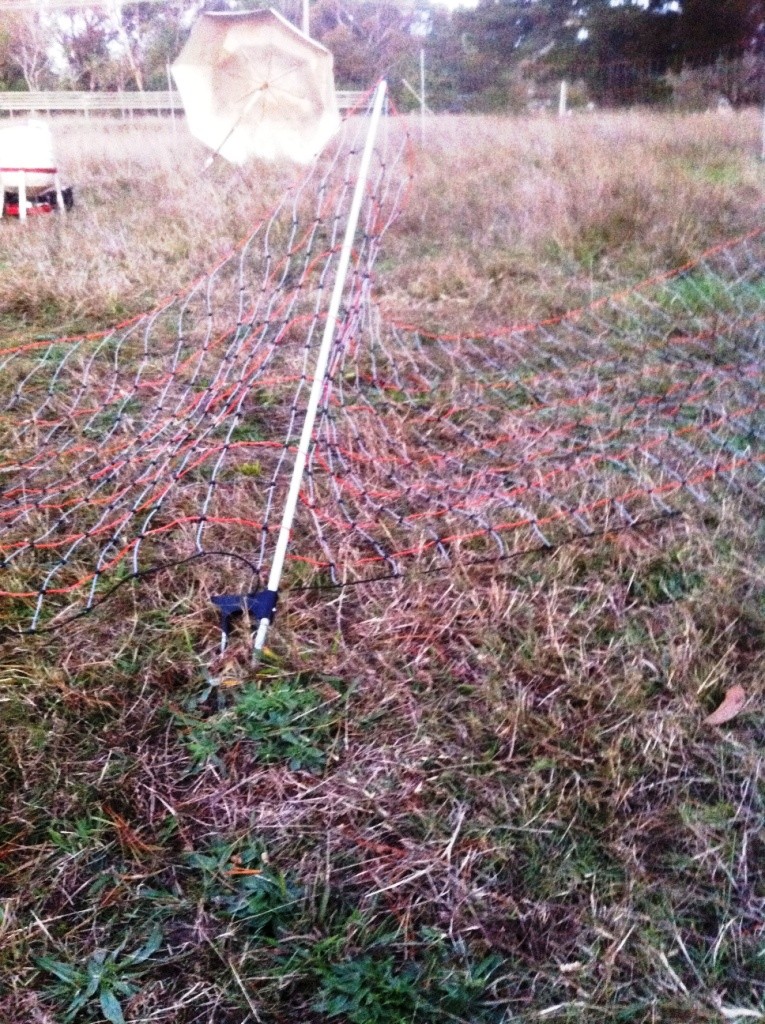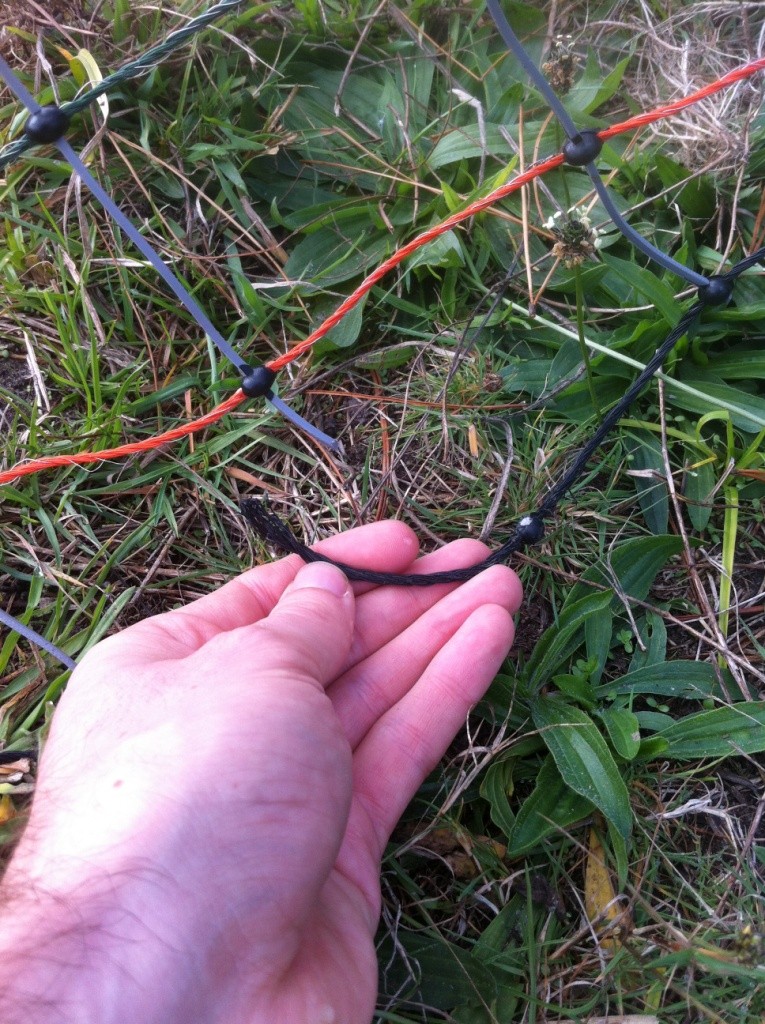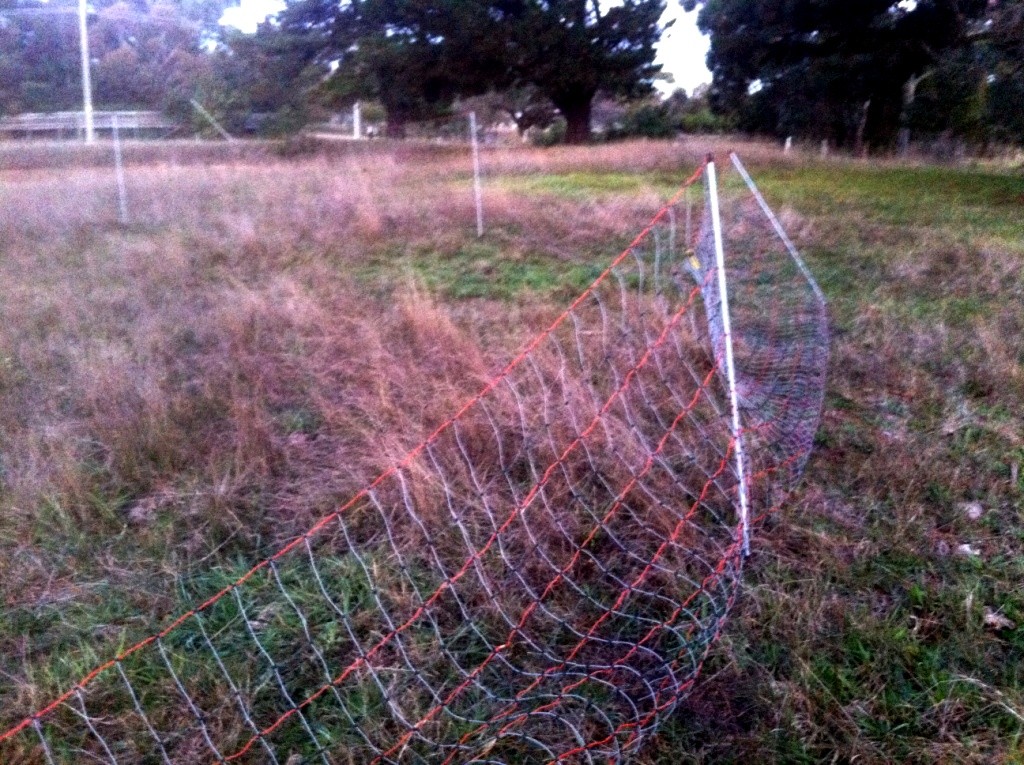Every now and again we will be posting about a topic that may seem a little boring to the vast majority of our readers. This may be one of those times, but portable electric fencing is an important issue for small scale farmers.
To protect the ducks against land based predators and to keep them in an enclosed area, I bought some Electranet portable electric fencing from Allsun Farm. I bought Starternet, because we wanted to get the greatest flexibility out of the fencing, and this small gauge fencing could handle small birds. It’s also much higher than the garden/pig net which could handle ducks. I wanted to get an electric fence that could handle chickens if we decided to head down that path in the future.
These portable electric fences are 50 metres long, and the Starternet is 1.2 metres tall and can be rolled out by a single person.

The Allsun Farm electric fences have been talked up quite positively by a range of farms, and certainly the quality appears to be better for the Allsun Farm portable electric fencing when compared to other cheaper versions available (although I haven’t actually bought these other fences). Certainly a number of online reviews indicated that this was the case.
Originally, I tried to order the same netting from the American supplier directly but the cost of shipping was an absolute killer unless I placed a massive order. They were selling for about $170USD for the same fence.
One of the major benefits in using this portable electric fencing is that the ducks can be moved to new ground relatively easily. Those with ducks of their own will know that they can be a little destructive to grass and plants, so moving them on and letting the area recover is a good idea.
Having portable electric fencing at Vidamour Farm also means that we can take our infrastructure with us if our circumstances change. While we enjoy working out at Vidamour Farm, we never know where life will take us, and having some flexibility can only be a good thing.
One of the issues that I’ve found with this fencing is that it can tear relatively easily, as you can see from the image below. I would have liked the netting to be a little more durable, and I worry how much trouble the poorer quality netting would be for farmers!

Another issue with the netting is that it often falls over in the wind. Moorooduc is not a particularly windy area, and Vidamour Farm isn’t overly exposed so the fact the fencing can get significantly effected is a bit disappointing.
I’ve planted the feet of the Startnet firmly into the ground, and this should be sufficient to maintain the height of the fence. Unfortunately that’s not been my experience.
I’ve also found that the feet of the Starternet can bend and find penetrating the ground difficult. The soil at Vidamour can be firm in places, but it’s not clay. It’s easier using the fence after very heavy rainfall, but be aware that it’s just not as simple as the videos demonstrate. Perhaps they could be strengthened with external stakes and rope, but this requires more effort, may limit the electrical effectiveness of the fence.
All in all, the Starternet portable electric fencing has been a bit “meh” for us. I’ve not been overly impressed with it, and my preference would be to get permanent electric fencing on an exterior boundary at some stage in the future. This won’t happen at Vidamour Farm, but once we get our own place it will give us more security. Internal fencing wouldn’t need to be electric (nor high), as it doesn’t take much to keep a duck in an area!


